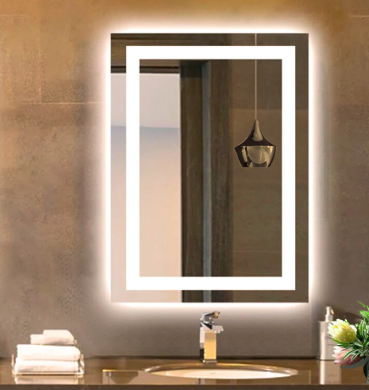Home » Things Companies Should Pay Attention to When Custom Lighted Mirrors

Custom lighted mirrors are a sought-after feature in modern interiors, offering both functionality and aesthetic appeal. For businesses planning to incorporate custom lighted mirrors into their product offerings or interiors, there are several critical considerations to ensure success.
Before placing an order, companies must clearly define the purpose of their custom lighted mirrors. Whether they are intended for residential bathrooms, hotel suites, or retail spaces, the functional needs may differ. For example, mirrors with adjustable lighting are highly valued in makeup studios, where precision is essential.
Accurate measurements are crucial to ensure the mirrors fit the intended space. Standard bathroom mirrors typically range from 24 to 48 inches in width, but custom lighted mirrors can be designed to fit any unique dimension. Additionally, businesses should collaborate with manufacturers to determine design elements such as frame styles, edge finishes, and mounting options.
High-quality LED lights in custom lighted mirrors should have a lifespan of 50,000 hours or more, reducing maintenance needs. Businesses should also specify the desired brightness level, usually measured in lumens. For instance, a bathroom mirror typically requires 500–1,000 lumens for optimal illumination.
Color temperature, measured in Kelvin (K), determines the mirror’s lighting tone. A versatile custom lighted mirror should offer adjustable color temperatures ranging from 3,000K (warm white) to 6,500K (daylight), catering to various user preferences.
The quality of the mirror glass significantly impacts durability and reflection clarity. Companies should opt for 5mm-thick, copper-free glass for a longer lifespan and enhanced resistance to corrosion.
Ensure the mirror has anti-fog and scratch-resistant coatings. Anti-fog technology is particularly essential in humid environments, such as bathrooms and spas.
Custom lighted mirrors typically cost between $100 and $300 per unit, depending on features like smart integrations and frame materials. Allocating an appropriate budget while ensuring quality is key to achieving a cost-effective solution.
Selecting a reliable supplier is paramount. Look for manufacturers with certifications such as ISO 9001 for quality management and CE compliance for safety. Requesting samples or reviewing their portfolio can further help in making an informed decision.
Businesses can stay ahead of market trends by incorporating smart features into custom lighted mirrors, such as touch controls, Bluetooth speakers, and voice commands. According to market research, demand for smart mirrors is projected to grow at a CAGR of 10% through 2028.
Eco-friendly practices are becoming increasingly important. Companies should prioritize suppliers that use recyclable materials and energy-efficient LEDs, reducing their carbon footprint.
Custom lighted mirrors represent a blend of style and functionality. By carefully evaluating factors such as lighting quality, material durability, cost considerations, and advanced features, companies can create products or interiors that meet both practical needs and modern trends. Paying attention to these details will not only enhance customer satisfaction but also strengthen brand reputation.
